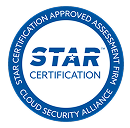In this episode, we have with us a celebrity from the onboarding and implementation space; Jeff Kushmerek, CEO & Founder, Infinite Renewals. Jeff has spent over 20 years in the post-sales organization with tech companies, building and launching implementation and professional services teams. He has helped multiple companies to achieve success with customers.
In this episode, Jeff talks to us about:
- His journey in the onboarding and implementation space
- Staffing your startup
- The skills to look out for when hiring for your startup
- The questions to ask to your first onboarding hire
… and more. Tune in!
Here's how our conversation with Jeff transpired.
Sri: In this episode of The Launch Station, we have a special guest who is well-known in the implementation onboarding field. Jeff Kushmerek is the founder and CEO of Infinite Renewals. With over 20 years of experience in post-sale organizations in the tech industry, including companies like Endeca and Brightcove, Jeff has played a crucial role in successfully launching these companies and ensuring customer satisfaction. He has also been instrumental in building implementation teams and professional services teams. We are thrilled to have you here, Jeff.
Jeff: Thank you for inviting me, Sri!
Sri: We will be delving into Jeff's experience of setting up the first implementation and PS team in different companies. Specifically, we will be focusing on staffing and the process of onboarding your inaugural team. However, before we dive into that, let's lighten the mood by discussing your favorite Taylor Swift song.
Jeff: There are so many great songs to choose from. Personally, I'm a big fan of Taylor Swift's album '1989'. I also play in a band on the weekends, and we used to perform her song 'I Knew You Were Trouble,' which I absolutely love. But there are other fantastic songs on her 'Redemption' album as well. Taylor Swift is a truly talented artist. She reminds me of The Beatles in terms of her amazing talent. I have so much respect for her and her high-quality music. What's your favorite Taylor Swift song?
Sri: I consider 1989 as one of my top choices as well. Jeff, since you assist many companies in establishing their implementation teams for onboarding, could you share how you got into this field?
Jeff: In the past, I used to be a talkative developer. This often led to various experiences and opportunities. Interestingly, we used to deal with on-premise installations like Brightcove and Endeca, where professional services were involved. We would install the software and hope to renew the service three years later. However, things changed when I started working for a SaaS company called Brightcove. This was my first encounter with setting up a SaaS platform, which brought about constant changes compared to the static on-premise installations I was used to. With SaaS, we had to work closely with the development team and adapt to new models.
After Brightcove, I ventured into some startup projects and eventually joined Virgin Pulse. Virgin Pulse sells to large employee populations and provides devices for tracking health and activity. Users who engage in healthy habits are rewarded with bonuses and health fund dollars.
This was quite a complex undertaking because it involved managing watches, payroll systems, and dealing with large companies. It was around this time that we realized the need for separate implementation teams to handle the complexities of these projects.
During conversations with Customer Success Managers (CSMs), they expressed difficulty in maintaining regular communication and engagement due to the overwhelming nature of implementation projects. It became clear that they struggled to find time for activities such as QBR (Quarterly Business Review) and EBR (Executive Business Review) cadences.
This realization marked a turning point for me. I have experience in professional services, project management, and technology architecture. Drawing connections from my background in development, I enjoyed solving these types of complex problems. Consequently, I started my own company three years ago to focus on this aspect rather than managing projects further down the line.
Sri: I'd love to hear about your experience setting up the team at Brightcove. Could you share some insights on what that journey was like? Specifically what lessons you gained and any mistakes that were made during the early stages.
Jeff: Brightcove is different from other companies in the SaaS technology field because of its approach to problem-solving. In the past, Brightcove would handle everything for the customer, but now they have shifted towards a model where the Customer Success Manager takes over after the initial setup. This model has been successful because Brightcove has already considered the need for administration and configuration within its product. They were fortunate that version 2.0 was in the works while the services team was being created. This allowed them to implement features like checkboxes and admin panels.
The services team consisted of project managers, Java, .NET developers, and QA teams because 90% of their customers were not only using the system but also creating an experience for their users. Brightcove treated each customer as a unique case, just like how Fox TV wanted to allow their users to watch their shows online. Currently, there is a clear separation between professional services, implementation, customer success, support, customer marketing, and education. These post-sale groups each have their own specific responsibilities and do not blend into one.
Sri: Definitely. I believe your work involves assisting early-stage companies in setting up their operations and processes as part of a team effort.
Jeff: We do work with pre-revenue companies who are about to start selling and need help with fulfillment. We also assist Series C and Series D companies in restructuring and preparing for their next level of growth. However, the challenges remain the same, just on a larger scale.
For beginner startups, it can differ from what is usually recommended by recognized names in customer success. When a startup has only sold a few deals and is going through implementation, they often rely on a generalist to handle various tasks, including support tickets. This is a temporary phase that requires a specific role, and it can be challenging to hire a dedicated Customer Success Manager when there is only one customer. Initially, executives or close acquaintances may manage the customer relationship.
The type of product a company offers determines the level of assistance required. For example, if it is a self-serve product where customers can access it through a credit card payment, a minimal tech touch approach might be sufficient. However, in B2B SaaS companies, which sell to other organizations, there are three main challenges to address. Firstly, the product might still be under development, requiring project management to align the customer's needs with the product team. This role requires someone with strong project management experience. Comparing it to the old model of having a Java developer and a project manager on custom services projects is an effective way to scale this role.
When dealing with integrations, it's crucial to address data cleansing, ETL, and the import of large data volumes. If not approached correctly, these tasks can negatively impact the company. Thankfully, there are now tools like Zapier that make integration with various systems easier. However, dealing with technical aspects and configurations requires a resource with some technical expertise.
While they don't necessarily have to be developers, a background in development can be beneficial. It's important to clearly distinguish between the roles of a project manager and a configurator. The project manager should focus on managing the customer and the software used for customer management, while the configurator handles the technical aspects. Developers or configurators often cost more but aren't suited for project management responsibilities such as running status meetings or chasing files.
Ideally, even when signing up the first customer, it's recommended to have separate roles for project management and configuration. A project manager can handle multiple projects, depending on the level of complexity. The number can vary but shouldn't be excessive. The key is to ensure that tasks are completed efficiently. Regarding the model used, you can either take charge of the customers’ configurations or provide them with a learning experience, guiding them through the process.
For instance, in week one, they can watch instructional videos or consult with a trainer. Once they have acquired the necessary knowledge, they can proceed with data imports or customization for e-commerce solutions, for example. This approach combines learning and doing rather than solely configuring the systems for customers.
Sri: I believe you understand the logical reasoning behind that, having gone through the experience yourself. Our product was launched last year, and I can confidently say that building that experience was crucial in ensuring faster launches. It helped us understand how to guide customers and accomplish tasks without any obstacles effectively. Moreover, when we started formalizing our approach with customers, we noticed that they reciprocated in the same manner. So, this is a proven strategy that has yielded positive results.
Jeff: That's an excellent observation. If you treat people in a professional and formal manner, they will respond in kind. Managing your team effectively is important, even in a startup where everyone is busy. Many organizations make the mistake of hiring junior roles, such as project associates, but this can lead to burnout and may not be suitable for handling enterprise clients.
Instead, I suggest referring to these roles as program managers, which conveys a higher level of responsibility and competence to the customer. Additionally, managing and training someone at a junior level can be time-consuming and drag you and your team down. It's better to provide guidance and support while allowing them to handle tasks independently.
They can take on more responsibilities with pattern recognition and the ability to propose process improvements. Don't limit yourself to a tight budget when considering implementation personnel. Think about the bigger picture and the importance of providing 100% customer satisfaction, especially in the beginning stages.
Sri: It's a great point to consider the importance of initial customers in spreading positive word-of-mouth and attracting new customers. Therefore, it is crucial to perform well in providing them with a satisfactory experience.
I'm interested in discussing the skills required for this role, such as project management, emotional intelligence, and pattern detection. Additionally, I believe there is a need for a problem-solving ability to address customer concerns during their journey without relying excessively on the support or technical team.
Moreover, building a strong customer relationship is essential. Given a limited budget, it may not be feasible to hire an experienced professional who has specialized in this field. Instead, it might be beneficial to find someone with relevant experience looking to break into this line of work. In this case, what skills should be prioritized when considering candidates for this role?
Jeff: Many people tend to focus on what the first Customer Success Manager (CSM) will be like, and I made that mistake myself too. However, hiring a CSM requires a different set of skills. I always refer to CSMs as the ‘huggers’ who provide support, while the implementation team is more focused on moving things along and ensuring a positive experience. For the initial role in a project, it's important to find someone who can handle basic configuration tasks within 30 days.
It's also helpful if they have experience with project management tools or certifications, but not necessarily the PMP certification, as I've found that overly technical project managers may struggle with adapting to the unpredictable nature of product development. It's crucial to strike a balance between technical expertise and customer empathy.
Bringing in a PMP-certified individual may result in unnecessary pressure and a rigid schedule, whereas a candidate with a service industry background is more likely to understand the importance of providing great customer experiences.
First impressions are crucial, as I've witnessed instances where a salesperson lost a deal only for the prospect to express dissatisfaction with the competitor's team and offer to switch if a kickoff meeting is arranged.
Therefore, it's essential to evaluate candidates based on their personality, cultural fit, and flexibility. Previous experience in the service industry, such as working at Starbucks or in restaurants, can often provide the desired soft skills needed for a successful customer success manager.
There are some excellent courseware options available that allow you to learn the basics comfortably from your own home.
Sri: There are certainly intelligent individuals who can utilize online resources, network effectively, and make progress in their endeavors.
Jeff: We see people who say, “Hey there! Do you have any suggestions for a great course related to X?” People often turn to places where they can ask questions and seek assistance. Many individuals rely on mentors for guidance and support.
Sri: Makes sense. What about the second and the third person on the team? Would you then start optimizing for some other skills?
Jeff: I have taken extensive notes on this topic, with many thoughts in mind. When considering the growth of a company, it is important to start from the ground up, assembling your startup team and implementing necessary roles such as a configurator and a project manager.
Once you have reached a stage where customers are actively using your product, it is crucial to hire a Customer Success Manager (CSM) to handle their needs. Without proper support, you may find yourself dealing with numerous variables and potential issues. Many businesses opt to have their first CSM also handle support, which can be a wise decision initially. However, it is essential to avoid relying on this arrangement for an extended period. You will eventually need someone dedicated to handling support tickets and related tasks.
Interestingly, members of the customer support team can serve as an excellent resource to promote into the implementation team. They possess valuable knowledge and familiarity with the product due to their daily usage. In fact, it could be argued that even the individuals responsible for building the product may not have the same level of understanding as the implementation and support teams, with the exception of a system-wide architect who may have a broader perspective.
Therefore, if we are considering a standard scenario, it is advisable to incorporate some adjustments and enhancements as you build your organization. When should you bring in a player coach or your first executive? In my opinion, it is beneficial to have a professional, experienced individual set up the team, then step back and hire directors who can leverage that foundation.
This approach allows for a more seamless transition rather than having to fix numerous issues along the way. However, managing the team requires individuals who are familiar with the challenges they face.
I refer to this philosophy as the ‘UPS philosophy’ because, regardless of your position, even as the CEO, you spend your first-week sorting packages and performing various tasks to gain firsthand experience. This approach proves to be extremely helpful.
In the role of support, individuals can progress to become implementation consultants. It is an easy transition to make. They may also choose to become implementation engineers. Then the questions for them are: Do you enjoy working with people? Are you comfortable with tasks such as giving status reports and locating files? Or would you rather focus solely on technical work, avoiding interactions and instead communicating with the development team?
Additionally, individuals within the customer support team can aspire to higher positions, such as project manager or solutions architect. This is particularly significant in B2B, where complex products and solutions require deep understanding.
In this case, a solutions architect is essential in bridging the gap between customer needs and product capabilities. They have the expertise to set up the software and handle any intricate integrations or API-related matters. They liaise with the product and development teams, ensuring customer requirements are met efficiently.
I have observed the importance of hiring the right person for the next level, especially when analyzing why projects took long or became complicated. It often becomes apparent that we need to anticipate the solution before finalizing the deal. This role, if successfully filled, can greatly contribute to customer satisfaction, success, and the timeliness of achieving desired outcomes. When dealing with complex integrations, constant Zapier tasks, and data cleansing, having a resource dedicated to these needs becomes essential.
Sri: Yes, we have noticed this need in several of our larger accounts. Interestingly, we have also observed this in some startups where the initial configuration and setup of the product can be done within a timeframe of three weeks to one month. In these cases, the presale engineer, along with the salesperson, takes on the responsibility of implementing the product for the first few customers. Would you agree that there is value in continuing this practice for a certain period of time?
Jeff: I want to discuss a particular solution here because our pre-sales engineering team is currently selling a developer product to a development team. It's a challenging situation because the product’s value may not be clear unless a proof of concept is executed that closely represents the production environment.
This is especially relevant for new markets like the one Salesforce is entering. I have worked with their team to oversee the entire process, starting from the agreement to conduct a proof of concept. The customer I'm referring to is now discussing their positive experience at your user conference, which is an ideal scenario. The sales engineer's role is to set up the basic level usage that can demonstrate value within 30 days without involving complex configurations like SSL. Subject matter experts are also involved in this process.
If the customer expresses satisfaction during the proof of concept phase, the implementation team takes over to make it production-ready. They handle the more intricate tasks like SSO and work on enhancing the value proposition based on the joint success criteria established earlier. Once done, the implementation team hands it off to the customer success management team, who ensures the customer continues to see value. It's important to remember that this process is not just about checking boxes but about understanding the customer's needs and translating them into software that delivers immediate value.
This combination of technical resources and subject matter expertise is beneficial. As teams grow, they may specialize in specific sectors such as package goods or finance. Hiring team members with subject matter expertise in these verticals can be valuable for a vertically focused solution. Scaling up may involve adding QA personnel to ensure the solution functions properly. Customer education and learning are crucial; bringing them in early allows for scalability and a more hands-off approach. A solid foundation in education enables further development, and early customers will benefit from this approach.
Sri: I think in 2021, we could bring all the people we wanted as early as we needed to. However, considering the potential lack of readily available funds in 2022, how should we address this issue?
Jeff: It all comes down to the jobs-to-be-done framework. We need to identify the critical tasks that need to be done, such as customer communication and technical tasks. Even if you don't have subject matter experts readily available, it's important to have the necessary scaling measures in place.
Not every step in the customer journey requires a personalized approach; there are simpler solutions, like instructional videos or spreadsheets, that can be implemented. By examining the customer journey as a whole, we can identify areas where we can incorporate more learning materials, reducing the need for a large team to assist customers.
Sri: If you were to interview this first candidate on behalf of one of the startups you are consulting with, what are two questions you would ask them to determine if they are a suitable match?
Jeff: During interviews, I always inquire about a candidate's conflict management skills, both internally and externally, and their approach to resolving conflicts. Additionally, I find it valuable to discuss their experience and proficiency in project management, as it is a crucial skill set.
Personally, if I had to choose one candidate, I would lean towards a former developer who transitioned into project management, as their versatility is admirable. However, I am open to considering project managers who have tried their hand at development or have undergone relevant training.
The point I want to emphasize is that technical knowledge should not be disregarded. So, depending on the situation, I would inquire about a candidate's familiarity with APIs without expecting them to code. I believe that a curious and proactive attitude is essential, as demonstrated by my own approach when faced with unfamiliar terms during conference calls. When I am uncertain about something, I promptly research it to ensure I am well-informed.
Sri: One of the questions I commonly pose to individuals interviewing for a customer onboarding/implementation role is the distinction between APIs and webhooks. This helps gauge their level of curiosity and interest in the subject.
Jeff: Oh, that’s a good question! It's not something that everyone would be able to answer, but it would be great if someone could say, “I'll look that up and provide you with the information." It's common for people to get into trouble by trying to come up with a solution on the spot instead of taking the time to research and provide an accurate response. Personally, I would prefer if someone admitted they weren't sure and took the initiative to find the answer.
Sri: We're now entering the final segment of the podcast episode. It's time for some rapid-fire questions. What is one habit you developed in 2022 that you plan on continuing into 2023?
Jeff: I must admit I feel a bit embarrassed saying this, but I recently became swamped with multiple projects and, as a result, neglected to send out agendas for meetings. A coworker called me out on it, not in a confrontational way, but by simply asking if I had prepared an agenda for a particular meeting.
I quickly made amends by getting back into the habit of creating agendas not only for internal meetings but also for customer meetings. The difference in productivity was astounding.
Another habit I've reintroduced is using an old-fashioned paper notebook with a spiral binding and a pencil. This has proven incredibly helpful since my handwriting with a pen is practically illegible. I tried using a Rocketbook, where you write and scan the pages, but it didn't work out for me.
Lastly, any tasks that must be completed are written on small green sticky notes. I limit the number of tasks on each note because, realistically, there's only so much one can accomplish in a day.
Sri: That's fantastic! Have you encountered any noteworthy books, shows, videos, or podcasts lately that you would like to recommend to others?
Jeff: There is a movie on Netflix called ‘General Magic’ which is about the creation Apple Newton, Apple’s first ‘personal digital assistant’ that was ahead of its time. It explores how the project members eventually went on to create the iPhone and revolutionize the world.
It may sound dull when I describe it, but it is actually an amazing movie. One of my customers recommends it to every new hire. If you haven't seen ‘General Magic,’ I highly recommend checking it out.
Sri: Before we conclude the episode, Jeff, I have one last question for you. If you were advising a newly appointed candidate for the position of the first customer onboarding/implementation manager, what guidance would you offer them as they transition into their new role?
Jeff: Feel free to ask as many questions as you like. However, please understand that there may be instances where we don't have the answers. Additionally, I want to clarify that when I used to work in downtown Boston, there wasn't always a strict documentation process in place.
Nevertheless, all the necessary information is written down, and standard operating procedures are available. But I encourage you to actively contribute and point out any missing elements so that we can improve. This is an excellent opportunity for you to shape the future of our department and determine how we operate.
Sri: That's great to hear! It's their duty to take on this responsibility and represent the company in such a crucial partnership. They should definitely reach out to us if they notice anything amiss. Thank you for joining us and providing all of your valuable inputs, tips, and insights.
Jeff: I had a great time today because I often discuss the importance of charging money for implementation and other related matters. There's a lot to cover, and staffing is especially crucial. Thank you for allowing me to share my experiences and thoughts. I want to emphasize that my approach is not the only one, so I welcome anyone who challenges me. I enjoy learning from my mistakes, so thank you.











